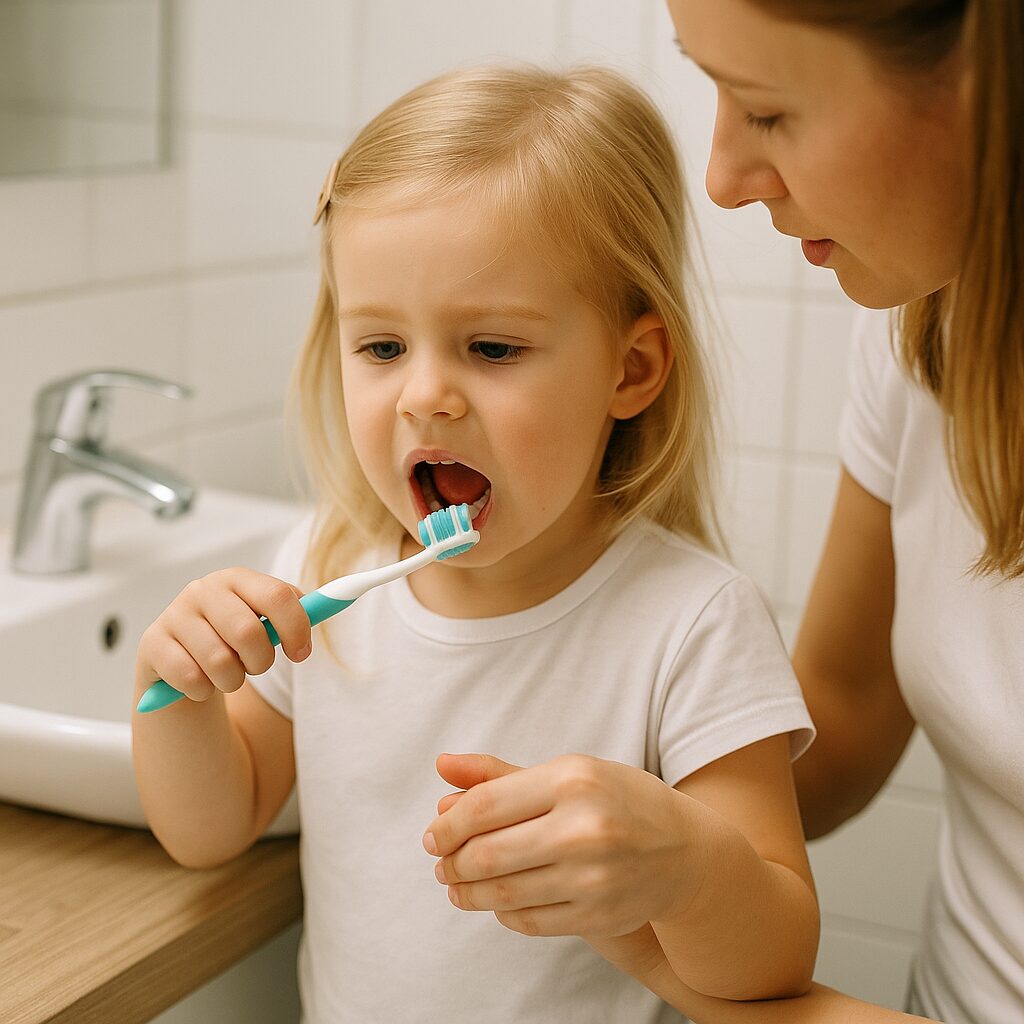Healthy teeth in childhood may lay the foundation for a lifetime of good oral health. However, children are often exposed to sugary foods and may not yet master proper brushing techniques. Parents’ guidance and consistent care could play an essential role in protecting children’s teeth. This article outlines practical tips for maintaining dental health in children and reducing the risk of cavities.

1. Establishing Proper Brushing Habits
Children may find brushing difficult on their own. Parents could demonstrate correct brushing techniques and supervise daily routines. Brushing twice or three times a day, especially after meals and before bed, may help prevent cavities. Using a small amount of fluoride toothpaste may further protect tooth enamel.
2. Regular Dental Check-Ups
Children’s teeth change quickly as they grow. Visiting the dentist every 6 to 12 months could help detect cavities early and monitor tooth alignment. Early treatment may reduce discomfort and prevent more complicated issues later.
3. Balanced Diet for Dental Health
Frequent sugary snacks and drinks may increase the risk of tooth decay. Encouraging children to rinse with water after sweets or to brush soon afterward could help. A balanced diet that includes calcium-rich foods such as milk, yogurt, and cheese, along with fruits and vegetables, may support strong teeth and gums.
4. Using Fluoride and Sealants
Fluoride treatments may strengthen enamel and reduce cavity risk. Dental sealants, applied to the grooves of molars, may prevent food particles from sticking and causing decay. These preventive methods are often recommended during childhood.
5. Choosing Healthy Beverages
Soda and sweet juices may erode enamel due to high sugar and acidity. Offering water, milk, or unsweetened beverages instead may reduce harm. Using straws for occasional sweet drinks may also lessen direct exposure to teeth.
6. Proper Tools for Oral Care
Age-appropriate toothbrushes and floss may improve oral hygiene. Soft-bristled small brushes for younger children and flossing in older children may prevent cavities between teeth. Parents may guide them until they develop independence in these habits.
7. Correcting Harmful Habits
Thumb-sucking, prolonged bottle use, and teeth grinding may affect tooth alignment and jaw development. Monitoring these habits and seeking professional advice if needed could prevent long-term dental issues.
8. Growth Stage Management
Neglecting baby teeth may affect permanent teeth later. Proper care during early stages, followed by monitoring permanent teeth eruption, could help ensure lifelong dental health. Orthodontic consultation may be considered if alignment issues appear.
9. Parents’ Role and Education
Children learn from parents’ example. Brushing together, preparing healthy meals, and maintaining regular check-ups may build awareness of oral health. Positive reinforcement and encouragement may motivate children to care for their teeth on their own.
🌿
Children’s dental health may be protected through consistent brushing, balanced nutrition, preventive care, and regular dental visits. With parents’ guidance and support, children could develop habits that last a lifetime, helping them maintain strong teeth and confident smiles.
References and Further Reading
World Health Organization (WHO) – Oral Health Promotion
American Dental Association – Children’s Oral Health
National Institutes of Health (NIH) – Pediatric Dental Care
※ This article is for general informational purposes only. Children’s needs may vary, and professional dental consultation is generally recommended for personalized care.